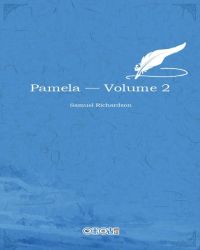LETTER LV
您可以在百度里搜索“Pamela — Volume 2 艾草文学(www.321553.xyz)”查找最新章节!
LETTER LV
My Dear Lady,
Although I cannot tell how you received my observations on the tragedy of The Distressed Mother, and the comedy of The Tender Husband, yet will I proceed to give your ladyship my opinion of the opera I was at last night.
But what can I say, after mentioning what you so well know, the fine scenes, the genteel and splendid company, the charming voices, and delightful music?
If, Madam, one were all ear, and lost to every sense but that of harmony, surely the Italian opera would be a transporting thing!—But when one finds good sense, and instruction, and propriety, sacrificed to the charms of sound, what an unedifying, what a mere temporary delight does it afford! For what does one carry home, but the remembrance of having been pleased so many hours by the mere vibration of air, which, being but sound, you cannot bring away with you; and must therefore enter the time passed in such a diversion, into the account of those blank hours, from which one has not reaped so much as one improving lesson?
Mr. B. observes, that when once sound is preferred to sense, we shall depart from all our own worthiness, and, at best, be but the apes, yea, the dupes, of those whom we may strive to imitate, but never can reach, much less excel.
Mr. B. says, sometimes, that this taste is almost the only good fruit our young nobility gather, and bring home from their foreign tours; and that he found the English nation much ridiculed on this score, by those very people who are benefited by their depravity. And if this be the best, what must the other qualifications be, which they bring home?—Yet every one does not return with so little improvement, it is to be hoped.
But what can I say of an Italian opera?—For who can describe sound! Or what words shall be found to embody air? And when we return, and are asked our opinion of what we have seen or heard, we are only able to answer, as I hinted above the scenery is fine, the company splendid and genteel, the music charming for the time, the action not extraordinary, the language unintelligible, and, for all these reasons—the instruction none at all.
This is all the thing itself gives me room to say of the Italian opera; very probably, for want of a polite taste, and a knowledge of the language.
In my next, I believe, I shall give you, Madam, my opinion of a diversion, which, I doubt, I shall like still less, and that is a masquerade; for I fear I shall not be excused going to one, although I have no manner of liking to it, especially in my present way. I am. Madam, your ladyship's most obliged and faithful P.B.
I must add another half sheet to this letter on the subject matter of it, the opera; and am sure you will not be displeased with the addition.
Mr. B. coming up just as I had concluded my letter, asked me what was my subject? I told him I was giving your ladyship my notions of the Italian opera. "Let me see what they are, my dear; for this is a subject that very few of those who admire these performances, and fewer still of those who decry them, know any thing of."
He read the above, and was pleased to commend it. "Operas," said he, "are very sad things in England, to what they are in Italy; and the translations given of them abominable: and indeed, our language will not do them justice.
"Every nation, as you say, has its excellencies; and ours should not quit the manly nervous sense, which is the distinction of the English drama. One play of our celebrated Shakespeare will give infinitely more pleasure to a sensible mind than a dozen English-Italian operas. But, my dear, in Italy, they are quite another thing: and the sense is not, as here, sacrificed so much to the sound, but that they are both very compatible."
"Be pleased, Sir, to give me your observations on this head in writing, and then I shall have something to send worthy of Lady Davers's acceptance."
"I will, my dear;" and he took a pen, and wrote the inclosed; which I beg your ladyship to return me; because I will keep it for my instruction, if I should be led to talk of this subject in company. "Let my sister know," said he, "that I have given myself no time to re-peruse what I have written. She will do well, therefore, to correct it, and return it to you."
"In Italy, judges of operas are so far from thinking the drama or poetical part of their operas nonsense, as the unskilled in Italian rashly conclude in England, that if the Libretto, as they call it, is not approved, the opera, notwithstanding the excellence of the music, will be condemned. For the Italians justly determine, that the very music of an opera cannot be complete and pleasing, if the drama be incongruous, as I may call it, in its composition, because, in order to please, it must have the necessary contrast of the grave and the light, that is, the diverting equally blended through the whole. If there be too much of the first, let the music be composed ever so masterly in that style, it will become heavy and tiresome; if the latter prevail, it will surfeit with its levity: wherefore it is the poet's business to adapt the words for this agreeable mixture: for the music is but secondary, and subservient to the words; and if there be an artful contrast in the drama, there will be the same in the music, supposing the composer to be a skilful master.
"Now, since in England, the practice has been to mutilate, curtail, and patch up a drama in Italian, in order to introduce favourite airs, selected from different authors, the contrast has always been broken thereby, without every one's knowing the reason: and since ignorant mercenary prompters, though Italians, have been employed in hotch-potch, and in translating our dramas from Italian into English, how could such operas appear any other than incongruous nonsense?"
Permit me, dear Madam, to repeat my assurances, that I am, and must ever be, your obliged sister and servant, P.B. Pamela — Volume 2




